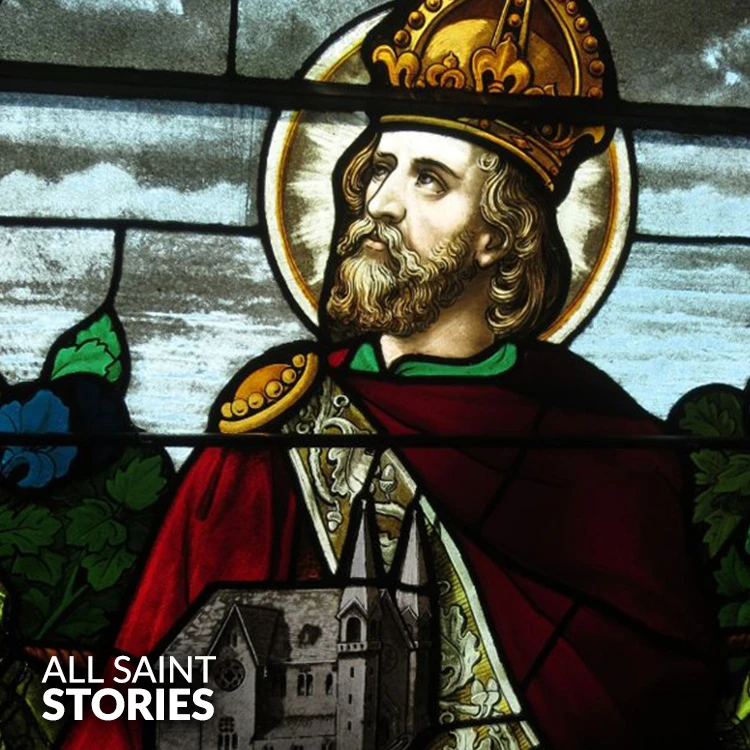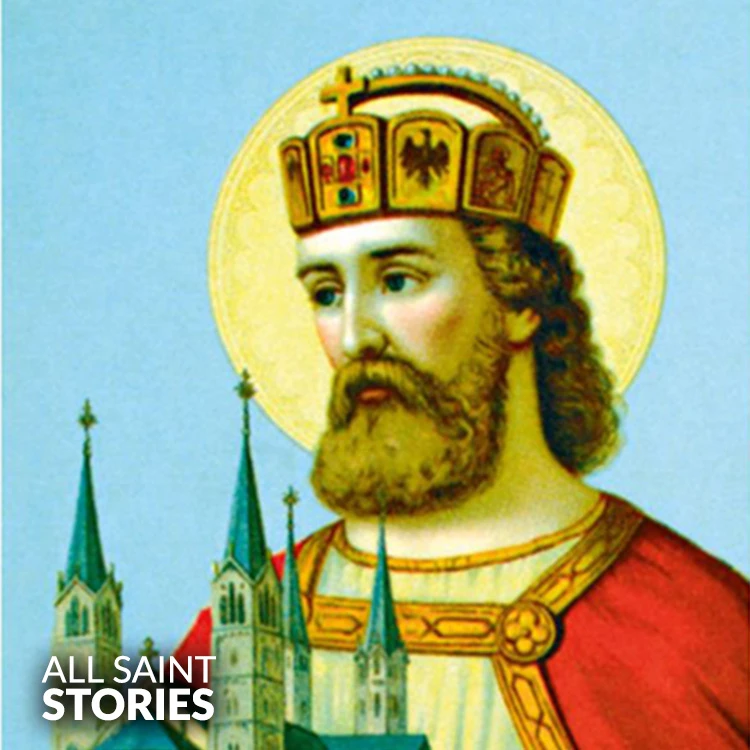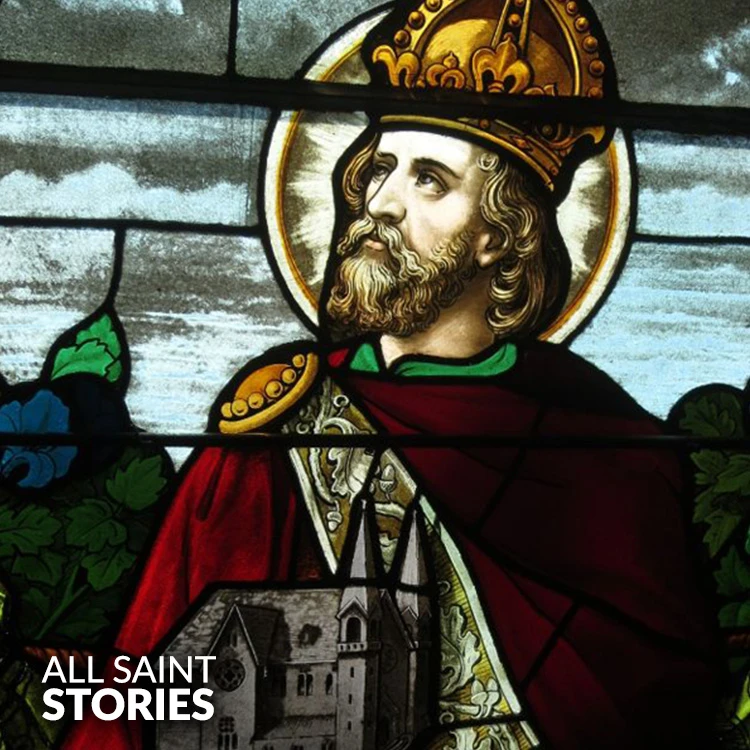Saint Henry, faithful servant of God, You lived with humility and love for Christ. Intercede for us in our times of need, That we may follow your example of holiness, And grow in faith, hope, and charity. Pray for us, that we may find strength In the grace of God to fulfill our mission. Amen.
ST. HENRY
ST. HENRY

Saint Henry II, Holy Roman Emperor, is revered for his devout Christian life, support of the Church, and efforts to bring peace to his empire. He was canonized in 1146 and is remembered for his piety, patronage of religious works, and commitment to spreading Christianity throughout Europe. Saint Henry’s leadership is a model of faith and service.
Saint Henry II, born in 973, became the Holy Roman Emperor in 1014. He was deeply religious and a passionate supporter of the Church, often seeking to strengthen its position in society. His reign was characterized by efforts to maintain peace within his empire and to improve relations between the monarchy and the clergy. Henry’s dedication to his faith extended beyond political matters. He built churches, supported Christian missions, and helped reform the Church, particularly in the Slavic regions of Europe.
His rule, though not without challenges, was marked by a commitment to justice and the peaceful governance of his territories. Despite uprisings and conflicts, he worked tirelessly to ensure that his empire remained stable and that Christianity flourished. Henry’s life of faith, charity, and service led to his canonization by Pope Eugene III in 1146, highlighting his deep commitment to both spiritual and temporal leadership.
Saint Henry’s impact was not limited to his political influence. He was known for his charitable works, particularly in the promotion of religious communities and the building of monasteries. His efforts to spread Christianity, especially in areas that were not yet fully Christianized, were crucial in shaping the religious landscape of medieval Europe.
During his reign, Henry was also instrumental in the development of the Holy Roman Empire, ensuring its unity during a period of great political fragmentation. His reign was a time of stability, and his efforts to protect the Church’s interests earned him respect both as a monarch and as a saintly figure.
After his death in 1024, Saint Henry’s legacy lived on through his contributions to both the Church and the political structure of Europe. His canonization in 1146 recognized him not only as an emperor but also as a spiritual leader whose actions in life were guided by a profound faith. His feast day is celebrated on July 13th, and his memory continues to inspire those in positions of leadership to govern with justice, faith, and compassion.
Video Not Found
The information on this website is compiled from various trusted sources. While we aim for accuracy, some details may be incomplete or contain discrepancies.
If you notice any errors or have additional information about this saint, please use the form on the left to share your suggestions. Your input helps us improve and maintain reliable content for everyone.
All submissions are reviewed carefully, and your personal details will remain confidential. Thank you for contributing to the accuracy and value of this resource.
Credits & Acknowledgments
- Anudina Visudhar (Malayalam) – Life of Saints for Everyday
by Msgr. Thomas Moothedan, M.A., D.D. - Saint Companions for Each Day
by A. J. M. Mausolfe & J. K. Mausolfe - US Catholic (Faith in Real Life) – Informational articles
- Wikipedia – General reference content and images
- Anastpaul.com – Saint images and reflections
- Pravachaka Sabdam (Malayalam) – Saint-related content and insights
We sincerely thank these authors and platforms for their valuable contributions. If we have unintentionally missed any attribution, please notify us, and we will make the correction promptly.
If you have any suggestion about ST. HENRY
Your suggestion will help improve the information about this saint. Your details will not be disclosed anywhere.
© 2026 Copyright @ www.allsaintstories.com





 English
English
 Italian
Italian
 French
French
 Spanish
Spanish
 Malayalam
Malayalam
 Russian
Russian
 Korean
Korean
 Sinhala
Sinhala
 Japanese
Japanese
 Arabic
Arabic
 Portuguese
Portuguese
 Bantu
Bantu
 Greek
Greek
 German
German
 Dutch
Dutch
 Filipino
Filipino